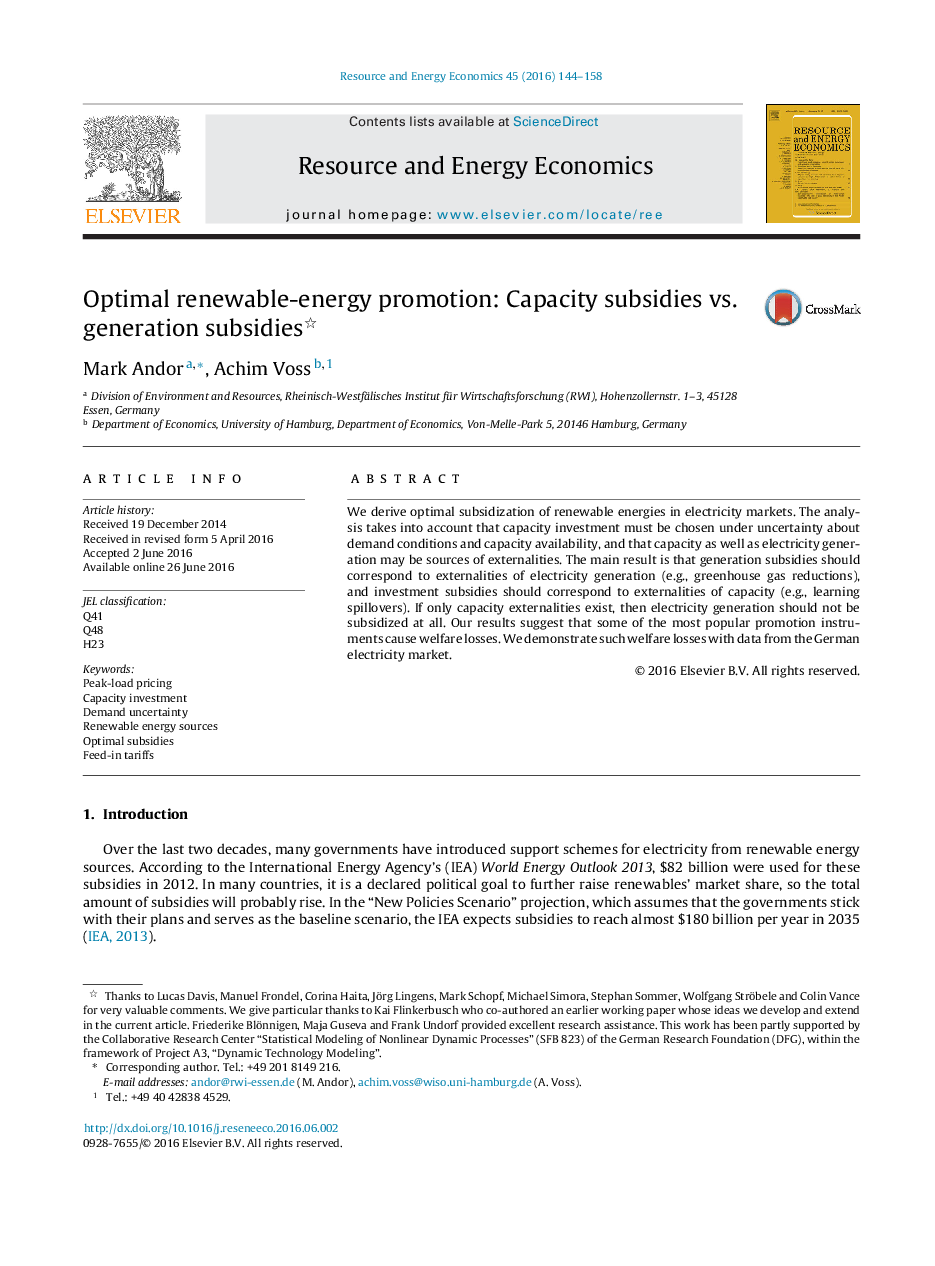| Article ID | Journal | Published Year | Pages | File Type |
|---|---|---|---|---|
| 985513 | Resource and Energy Economics | 2016 | 15 Pages |
•We analyze subsidies for renewable energy technologies.•Positive externalities of renewables may depend either on generated electricity or on capacity.•Taking this into account, we formally derive optimal subsidies.•Our results suggest that it is crucial for optimal policy to determine the source of externalities.•We show under which conditions popular instruments like feed-in tariffs cause welfare losses.
We derive optimal subsidization of renewable energies in electricity markets. The analysis takes into account that capacity investment must be chosen under uncertainty about demand conditions and capacity availability, and that capacity as well as electricity generation may be sources of externalities. The main result is that generation subsidies should correspond to externalities of electricity generation (e.g., greenhouse gas reductions), and investment subsidies should correspond to externalities of capacity (e.g., learning spillovers). If only capacity externalities exist, then electricity generation should not be subsidized at all. Our results suggest that some of the most popular promotion instruments cause welfare losses. We demonstrate such welfare losses with data from the German electricity market.
